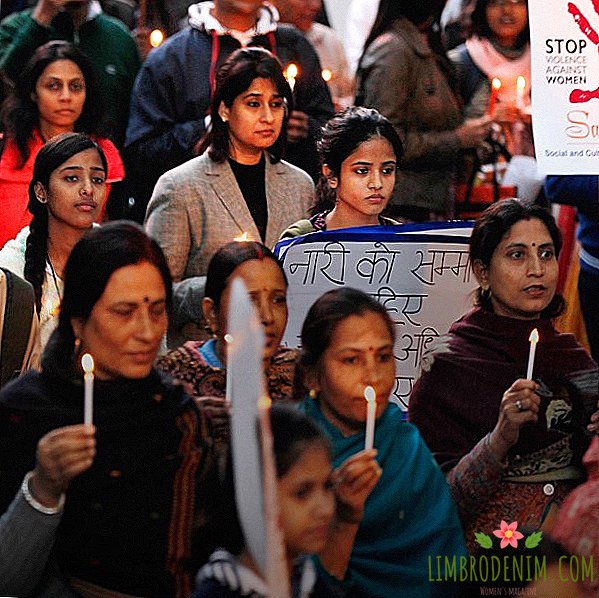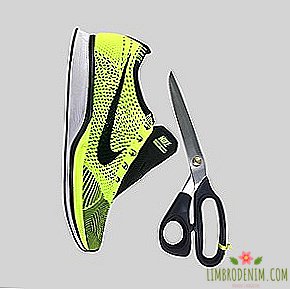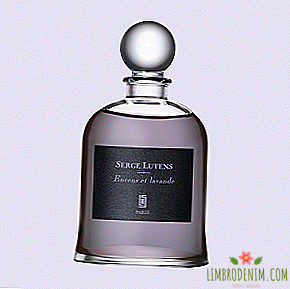SMM Consultant Tanya Rodina about favorite books
IN BACKGROUND "BOOK SHELF" we ask journalists, writers, scholars, curators, and anyone else not about their literary preferences and publications, which occupy an important place in their bookcase. Today, Tanya Rodina, a writer and international consultant on social media, shares her stories about favorite books.

How I hated learning to read. I remember color pages with illustrations filled with my tears. It’s good that it passed after I finally read my first book, The Three Little Pigs. Thank you mom and grandma for not allowing me to drop everything halfway. It did not take me further.
In childhood, reading was for me an attempt to stop feeling lonely. Almost all children are lonely, I'm not talking about adults any more. I have always been very active and wildly mobile: for example, at the age of nine, in order to find my best friend, I came up with the design of leaflets in the Word with ink people from the 90s and put them on the area. Then she came back home and waited for a call from potential friends, while spending time reading. All this now sounds sadder than it was in reality.
In fact, there were always a lot of people around me and I was constantly busy with something - from ballet to tennis, but still it was reading that taught me how to find comfort alone with myself, understand and accept loneliness. After all, in fact, it never ends, and this is normal. In one of the summer camps, I was somehow given a medal as the most reading girl in the camp. In two weeks I read six books - all because it was in that camp that I didn’t like my peers.
Among the most beloved books of childhood - "Conduit and Shvambraniya" Lev Kassil. This book about two boys who came up with a clean slate of their country has become a very close friend to me. I reread it more than fifteen times, seriously. The book was a library, very old, and I could not get it back. She is still kept at home with her parents, I dream to read it once to my children.
At the age of 14, my first love happened to me. At the same time I read Nabokov. Such an explosive combination. When the first love in a classically rapidly ended, but inside there was a new, unusual then emptiness, it was necessary to do something with all this. So I started writing my first stories. I opened a whole new dimension of literature. When you read, you seem to build bridges with yourself - you concentrate on deep inner work, and everything external for some time ceases to play a role. When I started working on my own texts, the sensations of contact with my inner world became even stronger. Many people know me as an eternally active, vigorous and cheerful, happy person. But everything that I write is very sad. The books I have written and read reflect the hidden sides of my personality, which require attention and rush to the surface. Very interesting how it all works.
I write and read in Russian and English, recently added German. My head is constantly on, and my attention is out of focus due to the hard work with social media. About everything related to social media and content marketing, I usually read not books, but blogs. By the time books are published on these topics, they are already half of their relevance - everything in the industry is changing too quickly. Perhaps the only publication worth reading on the topic is Content Marketing. New Methods of Attracting Customers in the Internet Age by Michael Stelsner, founder of the canonical blog Social Media Examiner.
In the morning I usually wake up at about five, do exercises and write for several hours while I can still collect my thoughts. If it is not written (and this also happens, and this is normal), I immediately start working. I usually read before bedtime to calm my head. The perfect day off after a busy work week is to stay at home with your loved one and read all day in bed, and not only read. Sometimes we read to each other. By the way, this is a very interesting sensation from the literature, the texts become more voluminous when you make contact together. I travel all the time, iPad and Bookmate are perfect for reading. In my list for the future now there are already more than 100 books - to be honest, I cannot help myself and constantly add new ones.

Jonathan coe
"The Rotters' Club"
At one of the parties, Oleg Sobolev told me about this book. A year later, I bought it in Paris. This is a strong, interesting novel. It is strange that not many people love Kou in Russia, but Tartt has become incredibly popular. In my opinion, he has much more interesting works. You can start with the swirling novel "The Rotters' Club". Be prepared for the fact that during the reading, tears may be shed.
Vladimir Nabokov
"Invitation to execution"
Roman Nabokov, which I still read with admiration. I remembered my first reaction well when I read it at school: I cried out in laughter with horror, almost howled with admiration. Nabokov here with his verbal hook pulls the reader out of their skin. What a phenomenal surrealism, just beautiful!
Timur vermes
"Look Who's Back"
By the way, about surrealism. This book was presented to me by my husband at the Bombay airport. Then he had already read it in German, and I got the option in English. Vermesh has a terrible and terribly interesting utopia: Hitler woke up in his bunker and began to promote himself through the media and social media. Despite the love of simple, life stories, such spectacular, satirical anti-utopias I like no less.
Gregory David Roberts
"Shantaram"
Writing in a simple language about the meaning of life is difficult. Gregory David Roberts has just that: a plot that is captivating to the bone and light on the subject of happiness, but they are light only at first glance. Interestingly, the plot is almost entirely based on real events. It's hard to believe, because it seems as if the action takes place in a different reality. Once I was walking down the street and told my girlfriend that I started reading "Shantaram". A stranger passed by, hearing me, he stopped and said: "" Shantaram "is a superbook!" - and went on. And he was right.
Daniel harms
"Flight to Heaven"
One of my favorite Russian poets. I like to read Kharms to children, they are always happy with his crazy poems and stories. I, too, am happy every time. I like when literature goes beyond the usual framework. When the story makes the reader stumble. I love this very honest, genuine feeling of amazement, sometimes even rejection. Especially good poems Harms go after a hard day's work. One poem is like a whole bottle of wine. Intoxicates.
David Deutsch
"The Beginning of Infinity"
Usually I read according to this scheme: fixed, non-fixed, something on social media or business, and then everything is in a circle. So I can harmoniously develop my brain, it works. David Deutsch, a British theoretical physicist with Israeli roots, writes in a very interesting way about the brain too. And also about space and quantum physics. By the way, this book, as it turned out recently, is on the shelf of Mark Zuckerberg. Do not be alarmed and be prepared for the fact that "The Beginning of Infinity" will require special concentration. The same with other works of Deutsch, for example "The Fabric of Reality".
Mihaly Csikszentmihalyi
"Flow: The Psychology of Optimal Experience"
To be honest, I do not really trust books on the topic of personal growth. Some kind of they are far-fetched, artificial. About "Flow" several different people told me several times. She began to read it with uncertainty, but then she could not stop. Necessary, understandable thoughts, simply stated by a Bulgarian psychologist with a beautiful surname. Perhaps my favorite book about the state, which many seek to achieve - the state of "flow." Briefly, it can be explained as follows: "I do something, and this makes me really kayfovo." Replaces the remaining thousands of books on how to become and stay happy.
David Foster Wallace
"Infinite Jest"
About the American writer David Foster Wallace recently released the film "The End of the Tour" with comedian Jason Siegel, who is known to many on the endless TV series "How I Met Your Mother." To be honest, I was very surprised when I looked at it. Five years ago, I was pleased to read Wallace's novel "Infinite Jest", but for some reason I missed his biography. She only knew that he had committed suicide. After this film, it became interesting to return to his texts again. The writer is fluent in the word, I like his plot moves and the topics he touches are very close. It is believed that Wallace wrote in order not to be lonely. It seems to have failed. In addition to "Infinite Jest" I advise "Brief Interviews with Hideous Men".
Yukio mishima
"The Temple of the Golden Pavilion"
First of all, my favorite country is Japan, here I really feel at home. Secondly, I really love this book by Japanese writer Yukio Mishima. After reading it, I was as depressed as when I finished Sartre's Being and Nothing. There is nothing wrong. I am incredibly inspired by the fact that some books can affect people with such force. Both Sartre and Yukio Mishima explode their feet under their feet and make them rebuild. After Sartre, it took me two weeks to do this. After Mishima - a little less.
Christian Kraht
"Empire"
I lived in Switzerland. In short: there is insanely beautiful and insanely boring. I didn’t expect anything good from Swiss literature either. And here first, the short notes of the traveler Kracht came hand in hand - the Swiss writer was both in Georgia and in Cambodia, and in many other places. For me, it became a discovery - what an interesting syllable, the most subtle humor and non-standard narration. In the Empire, Kracht is sometimes transformed into Nabokov: kilometer sentences (and in German they are twice as long), accurate parts and caustic comparisons. On the plot I will not even talk - there is pure magic.




